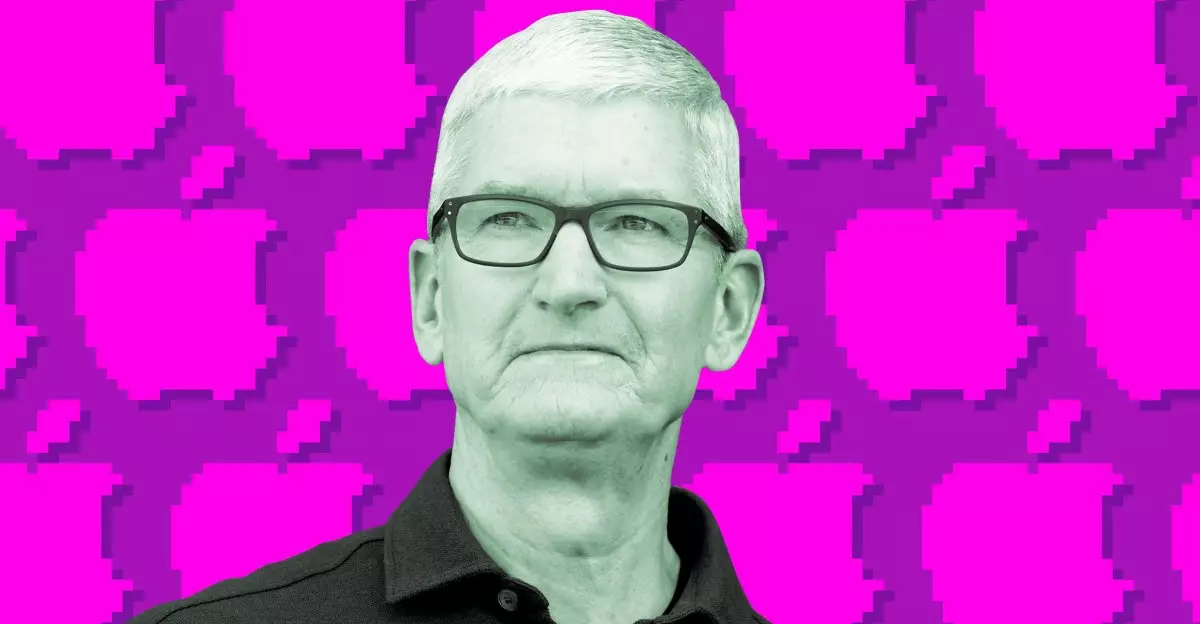In a rare and revealing all-hands meeting, Apple’s leadership showcased a forward-looking perspective that signals a paradigm shift for the company. CEO Tim Cook’s declaration that AI is on par with revolutionary inventions like the internet and smartphones underscores the importance Apple now places on artificial intelligence. Historically, Apple has been cautious in adopting new tech trends, often waiting until it can deliver a polished, user-centric experience. The emphasis on AI’s potential signals a strategic pivot where Apple seeks to redefine its identity—not just as a hardware innovator but as a leader in intelligent software ecosystems. This stance asserts that the future of Apple hinges on mastering AI, positioning it as a central pillar of their product and service portfolio.
Overcoming Past Shortcomings: From Delay to Determination
Despite its strong brand and loyal customer base, Apple has stumbled on AI initiatives, notably with Siri. The delay in launching an upgraded AI-powered Siri revealed challenges in integrating complex systems while maintaining high quality standards—a core Apple value. The company initially explored a hybrid architecture, combining traditional and large language models (LLMs), but recognized that this approach fell short of their expectations. This pivot suggests not only technical hurdles but also a willingness to admit limitations and innovate anew. The decision to overhaul their AI infrastructure indicates a commitment to ultimately delivering an experience that matches Apple’s reputation for excellence. Yet, it also exposes flaws in Apple’s internal strategy—an overreliance on proven but slower development cycles that may hinder agility in a fast-moving AI landscape.
The Talent Drain and the Competitive Race
However, Apple’s ambitions face significant internal headwinds. The company has lost top AI talent to competitors like Meta, which is aggressively hiring researchers and engineers in pursuit of superintelligence. This talent drain raises questions about Apple’s ability to keep pace with rapid advancements in AI and suggests internal challenges in cultivating a dynamic innovation environment. While Cook’s rhetoric positions this effort as a strategic, major push, the reality reflects the difficulty of competing with firms that prioritize AI as a core differentiator. Apple’s cautious approach might hinder its ability to attract and retain sought-after talent, especially when rivals offer the allure of groundbreaking projects.
Will Apple’s AI Quest Reshape Its Legacy?
Apple’s renewed focus on AI could be the defining move that solidifies its legacy in the next era of technological innovation. However, success hinges on careful execution. The company’s history of waiting until it can present a premium, seamless experience suggests it may avoid flashy but unpolished features—yet, this caution can also slow momentum against more agile rivals. If Apple manages to translate its vision into tangible products—whether through transformative features in iOS, smarter assistants, or new AI-powered devices—it could leapfrog competitors, elevating its reputation further. Conversely, inadequate execution or failure to outperform existing market standards could leave the company grappling with the very delays and missteps it seeks to overcome.
Apple’s future in AI is not guaranteed, and the stakes are high. Its ability to innovate at scale, attract top-tier talent, and deliver polished, user-friendly experiences will ultimately determine whether this bold vision will redefine the company—or merely echo past ambitions that never fully materialized.

